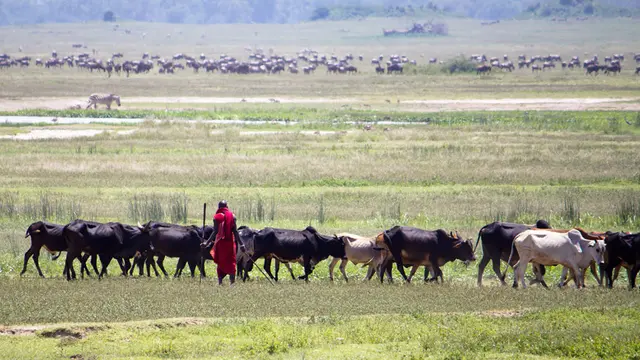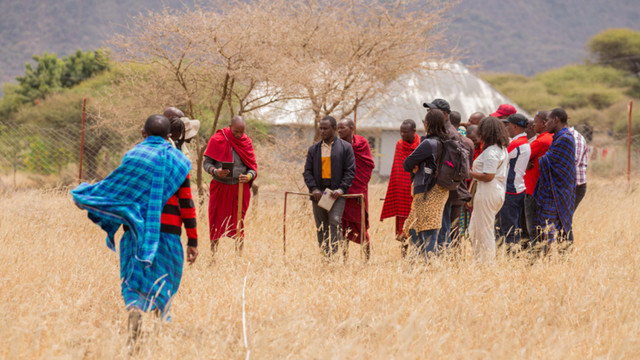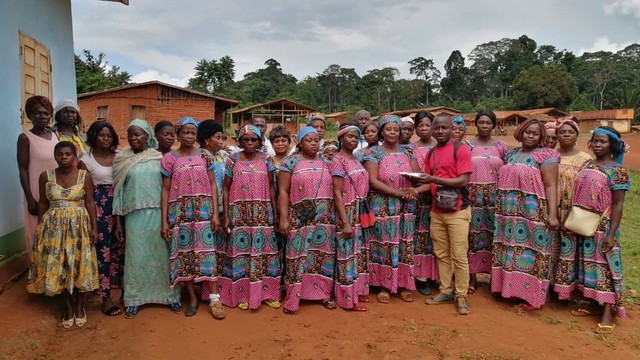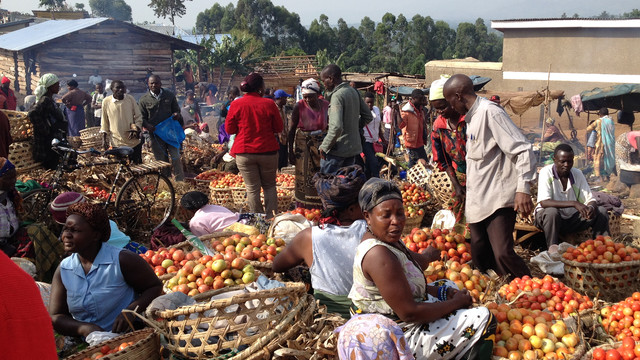Interview: Why the 18th community-based adaptation event is not to be missed!
From learning how to make climate adaptation innovations bankable to devising creative ways to decolonise climate action, Christine Ogola shares highlights to look out for at this year’s international conference on community-based climate adaptation.

Christine Ogola is a climate change specialist working with the Young Women’s Christian Association (YWCA) in Kenya and serves as the national coordinator of the African Youth Initiative on Climate Change (AYICC), Kenya Chapter
Christine led the youth track at CBA17 last year and is on the programming team for this year’s conference. Here, she shares what’s in store at CBA18.
Q: What makes the community-based adaptation (CBA) event different?
CO: Locally led adaptation is pushing its way up the policy agenda and now features at key global climate events such as the Africa Climate Summit, the regional Climate Weeks and the UN climate negotiations (COP).
The CBA conference differs from these events in the way it brings together groups from such a wide spectrum – international donors, climate change experts, grassroots representatives, local government planners, national policymakers – in a safe, inclusive space. Spanning local to national to global, CBA is a place where you can meet people from diverse backgrounds who you don’t come across in your immediate line of work.
The whole setting of the event encourages intimate and frank discussion where you are free to share your views and ideas, and everyone is ready to listen.
There are no hierarchies; everyone joins as an equal. It’s a stark contrast with places like the COP which can be overwhelming and confusing even for the most seasoned delegate. And at COP you can feel like an outsider: unless you attend as a climate negotiator, you are excluded from many sessions and spaces, only left wondering what is going on behind those closed doors. So it’s the inclusive, egalitarian framing that makes CBA so different.
I recall joining a session that was exploring practical ways to funnel climate finance to the local level. In our group was a representative from the World Bank, one of the biggest international donors.
A core part of my work is linked to financing locally-led climate action. I work at the grassroots level, harnessing the voices of the most marginalised groups in climate action. The major problem with international climate finance is that very little trickles down to communities.
It’s rare to get the opportunity to sit alongside a major donor to discuss the challenges around the distribution of climate finance and share the experiences of people direct from the local level. In our diverse group there was no ranking of importance: we were all able to interact, network and express our experiences freely, ask questions, share challenges, raise concerns, participate without judgement. In that moment, as a young woman expressing my concerns, I felt heard.
And the connections you make at CBA endure; I stayed connected with the World Bank representative post-CBA and we continued to exchange ideas on how we could work together, engaging the county governments and communities on financing locally-led climate action.
On networking, I have to give mention to having the opportunity to connect with the late professor Saleemul Huq. During one of the CBA17 panel sessions he shared information about a course that his organisation ICCCAD was running on locally led adaptation.
I sent professor Huq an email – he responded within two minutes! I was stunned. But this mirrors the tributes to professor Huq that rushed in from all around the world on his passing – a hugely influential figure, a pioneer, a visionary – and yet somehow always making himself available for the smallest request if it was part of the cause. He was so generous, so warm and so encouraging.
Q: CBA is geared towards acquiring new knowledge and skills, and applying them in practice. Can you share any elements from a previous CBA that you’ve used in your work?
CO: For me, a highlight from last year’s event was the talanoa – I’d never heard of this concept before joining CBA. ‘Talanoa’ is a Pacific word that describes an inclusive approach to solving complex challenges.
These are lively dialogues rooted in storytelling where everyone in the room – and that means everyone – shares stories and swaps ideas in a completely transparent, non-confrontational setting. Every talanoa is guided by the same three key questions: where are we? Where do we want to go? How do we get there?
It’s incredible how such a simple concept can be so powerful in encouraging all participants to open their minds, reflect, focus on a way forward and reach a consensus-based decision.
A talanoa circle at CBA17 explores how to ‘fix’ the climate finance system to get more adaptation money into local hands (Photo: Teresa Corcoran, IIED)
I took the concept of talanoa back to Kenya and shared the concept during an exercise with my work colleagues, the county government of Turkana and grassroots community members. Together we mapped out key challenges and identified possible solutions around the journey of climate finance from donor to intermediary, all the way down to local level.
The process enabled community members to fully participate in a climate change risk and vulnerability assessment that identified specific climate vulnerabilities of women, young people, persons with disabilities, and Indigenous Peoples. It also ensured that members from these marginalised groups were on the climate change committees set up by the county government, and in this way they could push to prioritise projects that channelled climate finance directly to community level.
At CBA18, we’re planning a talanoa that will explore barriers and obstacles to accessing global climate finance. I’m excited to see what consensus-driven solutions this session will turn up!
Q: Young people are routinely invited to join global climate events and dialogues, but often share frustrations that they remain on the peripheries. How does CBA ensure the voices of young people are fully integrated into the event?
CO: There’s always been a space for young people at CBA. At CBA17, one of the five themes was dedicated to young people, exploring opportunities for how they can drive locally led adaptation.
Young people are champion innovators and have a massive role to play in driving locally led adaptation. They are also expert problem solvers, and their ideas are fundamental to tackling the question of how to turn global and national climate commitments into local action.
CBA18 will provide plenty of opportunities for young people to engage meaningfully. We will host a session focused on how youth involvement in climate action is shaping the future. This interactive session will delve into ways to empower youth to address climate impacts locally, nationally and internationally and to lead climate initiatives.
Other sessions will include storytelling and advocacy, skills development and innovation. There will also be a ‘marketplace’ where 'stall holders' will share tools and approaches that showcase adaptation innovations.
Young people have always been valuable contributors to CBA’s ‘Dragons’ Den’ which is all about ways to attract funding for innovative, locally-driven climate adaptation initiatives.
Participants develop ideas for adaption projects, create supporting business plans and learn how to make investment pitches. Mentors guide them through the process, including how to refine and polish their pitch. In the final session, the ‘dragons’ – a panel of people with investment experience – assess the pitches, offer feedback and select a winner.
The Dragons’ Den is the ideal place for young people to develop their burgeoning ideas for local adaptation. Some amazing youth-led innovations are emerging, but these ideas need funding and young people often find it difficult to get access to funders or to be seen as credible to investors. The Dragons’ Den is a brilliant place for young people to learn how to pitch their ideas to get the attention of potential donors, and how to make their innovations genuinely bankable.
Q: What are you most looking forward to on the CBA18 agenda?
CO: I'm most excited about the opportunity to network and build relationships with professionals from across the globe. CBA18 will bring together a diverse group of individuals, each with unique perspectives and experiences in climate action. This networking opportunity is invaluable for learning, collaboration and creating lasting connections.
I'm particularly looking forward to the sessions that will explore how we can challenge colonial legacies in climate action and empower communities to innovate and lead their own adaptation strategies. These discussions are crucial for driving meaningful change and ensuring that our approaches are inclusive and impactful.
CBA18 will provide a platform for learning and collaboration, and inspire us to rethink our approaches to climate action. I'm excited to be a part of this transformative event and look forward to sharing insights and experiences with fellow participants.
Join us at CBA18! Together we can join forces to drive positive change and create a more sustainable future for all.
This interview was conducted with Teresa Corcoran, content manager in IIED's Communications Group



